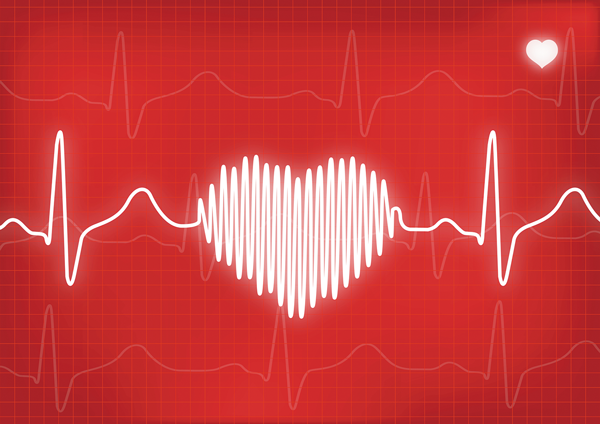How to Know if You Are Having a Small Heart Attack
About half of all heart attacks are mistaken for less serious problems and can increase your risk of dying from coronary artery illness.

Paradigm: goir/Getty Images
You lot tin have a heart attack and non even know information technology. A silent center assail, known as a silent myocardial infarction (SMI), business relationship for 45% of middle attacks and strike men more than women.
They are described every bit "silent" because when they occur, their symptoms lack the intensity of a classic eye attack, such as farthermost chest hurting and pressure; stabbing hurting in the arm, neck, or jaw; sudden shortness of breath; sweating, and dizziness.
"SMI symptoms can feel so mild, and be so brief, they often get confused for regular discomfort or some other less serious problem, and thus men ignore them," says Dr. Jorge Plutzky, director of the vascular illness prevention programme at Harvard-affiliated Brigham and Women's Hospital.
For instance, men may experience fatigue or physical discomfort and chalk it up to overwork, poor sleep, or some full general age-related anguish or pain. Other typical symptoms like mild pain in the throat or chest can be confused with gastric reflux, indigestion, and heartburn.
Also, the location of pain is sometimes misunderstood. With SMI, you lot may feel discomfort in the center of the chest and non a sharp pain on the left side of the chest, which many people associate with a middle attack. "People can even feel completely normal during an SMI and afterwards, too, which further adds to the risk of missing the alarm signs," says Dr. Plutzky.
SMI: Unaware of possible danger
The number of people who suffer an SMI and don't realize it is alarming. A report in the Nov. 10, 2015,Journal of the American Medical Association looked at almost 2,000 people ages 45 to 84 (half of whom were men) who were free of cardiovascular illness.
After 10 years, 8% had myocardial scars, which are evidence of a heart set on. Near surprising was that 80% of these people were unaware of their condition. Overall, the prevalence of myocardial scars was five times college in men than in women.
SMI and regular heart attacks share the same risk factors: smoking, being overweight, lack of practice, high blood pressure, high cholesterol levels, and diabetes. They can exist just as dangerous, too. "SMI oft leaves scarring and damage to the heart, which, combined with the fact that many people who take an SMI don't seek immediate intendance, can further raise a person's risk of a second and potentially more harmful heart attack," says Dr. Plutzky. In fact, people who have an SMI and don't go treatment accept a three times greater take a chance of dying from coronary artery disease. "A silent heart attack is a loud signal your body sends that you have some kind of underlying health issue that needs attention," says Dr. Plutzky.
How to get checked out
Men may not exist aware they had an SMI until weeks or even months subsequently when they run into their doctor for a regular visit, or considering of persistent symptoms like fatigue, shortness of jiff, or heartburn.
SMI is usually detected from an electrocardiogram (EKG) or echocardiogram, which can highlight center muscle harm. Another method is a blood examination for the molecular footprints of troponin T, a protein released by injured eye cells. That test is oft used in emergency departments for patients with eye attack symptoms.
Once an SMI is diagnosed, your md tin place your primary risk factors and assist design a treatment strategy, including changing your diet, exercising regularly, and taking a statin as well as other medication to help prevent a 2d heart assail .
"If you practice observe any symptoms of a SMI, do not brush them aside, even if you do not think they are serious," says Dr. Plutzky. "Playing it safe is e'er a amend move than risking the potential harmful downside."
SMI warning signs
SMI symptoms are oftentimes mild and brief. Seek immediate medical attention if y'all experience one or more of the following:
- Discomfort in the centre of the chest that lasts several minutes, or goes abroad and comes dorsum. It can feel similar an uncomfortable pressure, squeezing, or hurting.
- Discomfort in other upper-trunk areas, such as ane or both arms, the dorsum, the neck, the jaw, or the tummy.
- Shortness of breath earlier or during chest discomfort.
- Breaking out in a cold sweat, or feeling nauseated or light-headed.
Equally a service to our readers, Harvard Health Publishing provides access to our library of archived content. Please annotation the engagement of last review or update on all articles. No content on this site, regardless of date, should always be used equally a substitute for direct medical communication from your doctor or other qualified clinician.
smithtrapprid1957.blogspot.com
Source: https://www.health.harvard.edu/heart-health/the-danger-of-silent-heart-attacks#:~:text=SMI%20warning%20signs&text=Discomfort%20in%20the%20center%20of%20the%20chest%20that%20lasts%20several,the%20jaw%2C%20or%20the%20stomach.
Belum ada Komentar untuk "How to Know if You Are Having a Small Heart Attack"
Posting Komentar